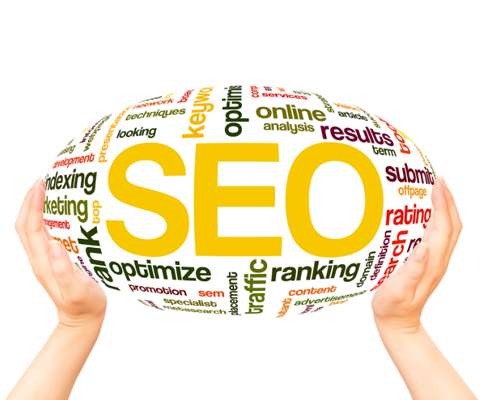Getting top rankings in search engine results isn’t just about using the right keywords; creating and optimising your meta tags and descriptions is also essential. Meta tags duplicate meta descriptions are snippets of HTML code that provide information to web crawlers, including a page’s report and its keyword relevance. Illustrations help searchers decide whether or not to click through from the SERP (Search Engine Results Page) to visit your site. Without giving attention to these two elements, you’re losing out on valuable opportunities for search engine visibility. In this blog post, we’ll discuss why meta tags and descriptions are essential for SEO success and tips on how to craft effective ones for maximum impact!
What are Meta Tags?
Meta Tags are among the most essential to achieving a successful SEO strategy. They are snippets of data that provide information about a web page, such as the page title, description, and keywords. Although they are not visible on the page itself, they play a crucial role in improving the visibility of a website in search engine results pages. Using Meta Tags as a part of your SEO strategy provides a significant opportunity to improve and optimise your website’s pages for search engines and ensure that users can find your site easily. Meta Tags can increase your website’s ranking, attract more visitors, and create an informative online presence.
Importance of Meta Tags and Descriptions for SEO
Meta tags and descriptions are crucial in search engine optimisation (SEO). They provide essential information to search engines and potential visitors about the content and relevance of your web pages. Here are some key reasons why meta tags and descriptions are necessary for SEO:
Improved Search Engine Rankings
Search engines use meta tags and descriptions to understand the topic and relevance of a web page’s description. Optimising these elements with relevant keywords and compelling descriptions can help search engines index and rank your pages better. When search engines understand your content better, it increases the likelihood of your pages appearing in relevant search results.
To achieve improved search engine rankings, it is essential to understand how search engines operate. One crucial factor that search engines use to determine a web page’s order is the content’s relevance. By optimising meta tags and descriptions with relevant keywords and informative reports, you are helping search engines understand the topics covered on your website. This will lead to an increase in the visibility of your site in relevant search results. Remember, when search engines can better understand your content, it will improve the chances of your users finding your website, increasing traffic and engagement.
Increased Click-through Rates (CTR)
Meta tags and descriptions appear in search engine results pages (SERPs) as snippets alt text that give users a preview of your page. By crafting informative and enticing meta descriptions, you can attract users’ attention and entice them to click on your link. A higher CTR indicates to search engines that your page is relevant and valuable, potentially leading to improved rankings.
Ensuring a high click-through rate (CTR) is crucial to the success of your online presence. Meta tags and descriptions play a critical role in this process by giving potential visitors a glimpse of your website’s content. Creating informative and engaging meta tags matter descriptions can attract users and encourage them to click on your link. A higher CTR drives more traffic to your site and signals to search engines that your page is valuable and relevant, potentially leading to improved search rankings. Creating compelling meta tags and descriptions takes time and effort, but the payoff is worth it – increased CTR can help your online business thrive.
Enhanced User Experience
Meta tags and descriptions provide a summary of your page’s content. When users see accurate and concise html tags and reports, it helps them determine if your page matches their search intent. This improves user experience by ensuring visitors are more likely to find the information they seek, reducing bounce rates, and increasing engagement on your website.
An enhanced user experience on your website is crucial in today’s digital age. One element contributing to this experience is using meta tags and descriptions properly. These attributes summarise your page’s content, making it easier for users to determine if your page matches their search intent. By using accurate and concise descriptions robots meta tag, you can improve the overall user experience on your website. This will also help reduce bounce rates as users are more likely to stay on your website longer when they quickly find what they are looking for. As an informative tool, meta tags and descriptions can increase engagement and help retain users on your website.
Differentiation from Competitors
Well-crafted meta tags and descriptions can make your web pages stand out from competitors in search results. By using meta description tags highlighting unique selling points, relevant keywords, and compelling calls to action, you can capture users’ attention and entice them to choose your page over others. Effective differentiation can lead to increased click-through rates and better overall visibility.
Differentiating your website from competitors can be achieved through well-crafted meta tags and descriptions. These elements of your web pages can make all the difference in search results. By utilising relevant keywords and highlighting your unique selling points most important meta tags, you will be able to capture users’ attention and stand out amongst your competition. Implementing a compelling call-to-action can also entice users to choose your page over others. Understanding that effective differentiation can lead to increased click-through rates and better overall website visibility is essential. Keep these tips in mind as you work towards informing users and ultimately achieving success.
Social Media Sharing
Meta tags, specifically Open Graph tags, are vital in optimising how your web pages appear when shared on social media platforms. You can ensure that shared links display accurate titles, descriptions, and compelling images by providing optimised meta tags. This encourages more social media engagement, click-throughs, and traffic to your website.
Social media sharing is an essential part of online marketing. It would help if you focused on optimising your web pages by including meta tags to make the most of it. These tags, specifically Open Graph tags, allow you to provide accurate titles, descriptions, and images when your links are shared on social media platforms. By optimising these social media meta tags, you can ensure that your content stands out and is more engaging to users, encouraging them to click through to your website. This approach can help you increase traffic to your site and boost your online presence, making it a vital part of your marketing strategy. You can take your social media game to a new level with the correct meta tags.
Accessibility and Indexing
Search engines rely on meta tags, such as the meta robots tag, to understand how to crawl and index your user’s query for pages. By utilising these tags effectively, you can control which pages should be indexed, prevent duplicate content issues, and ensure that search engines prioritise the most essential pages on your website.
Accessibility and indexing are crucial elements for search engine optimisation, and one of the most effective tools at your disposal is meta tags. These tags help search engines understand the content on your website and index it accordingly. One such tag is the meta robots tag, which tells the search engine how to crawl and index your pages. By using these html meta tags more effectively, you can prevent issues such as duplicate content and ensure that the essential pages on your website are prioritised. This can help make your website more accessible and informative to search engines and users.
Meta tags and descriptions are essential for SEO, providing valuable information to search engines and users. By optimising these tags with relevant keywords, compelling narratives, and accurate summaries, you can improve search engine rankings, increase click-through rates, enhance user experience, differentiate your pages from competitors, and improve social media sharing.

Frequently Asked Questions
What are meta tags and descriptions?
Meta tags and descriptions are HTML elements that provide information about a web page’s content to search engines and users. Meta tags are placed in the head section of a webpage’s HTML code and include elements like the title tag, meta description tag, and meta keyword tag (although the meta keyword tag is less relevant for SEO nowadays). The meta name description content description is a concise summary of the page’s content.
Why are meta tags and descriptions important for SEO?
Meta tags and descriptions are essential for SEO because they help search engines understand the content and relevance of a web page. They play a role in determining how a page is indexed and ranked in search engine results. Additionally, they provide users with a preview of the page’s content in search engine snippets, influencing their decision to click on the link.
What is the impact of meta tags and descriptions on search engine rankings?
While meta tags and descriptions are not the sole determining factors for search engine rankings, they contribute to a page’s visibility and click-through rates. Optimising meta tags with relevant keywords, accurate descriptions, and compelling calls-to-action can improve a page’s chances of ranking well in search results and attracting more organic traffic.
How can I optimise meta tags and descriptions for SEO?
To optimise meta tags and descriptions for SEO, consider the following best practices:
- Include relevant keywords: Incorporate keywords that align with the page’s content and search intent.
- Keep it concise: Ensure meta descriptions are informative and compelling but within the recommended character limits to avoid truncation in search engine snippets.
- Write unique meta tags and descriptions: Each page should have a unique and specific meta tag and description that accurately reflects its content.
- Focus on user engagement: Craft meta descriptions encouraging users to click by providing a clear value proposition or enticing page content snippet.
Do meta tags and descriptions impact click-through rates?
Yes, meta tags and descriptions can significantly impact click-through rates (CTR). Well-optimised and compelling meta descriptions can attract users’ attention in search engine snippets, increasing their likelihood of clicking on your link. A good meta description with higher CTR indicates to search engines that your page is relevant and valuable, potentially leading to improved rankings.
Are meta tags and descriptions relevant for social media sharing?
Yes, meta tags, particularly Open Graph tags, are crucial in optimising how your web pages appear when shared on social media platforms. These tags provide information like the title, description title tags, and image associated with the shared link. Optimising these tags ensures that your shared links display accurately and attractively on social media, encouraging engagement and click-throughs.
How can I measure the effectiveness of my meta tags and descriptions?
To measure the effectiveness of your meta tags and descriptions, you can monitor metrics such as search engine rankings, organic traffic, and click-through rates in analytics tools like Google Analytics. By analysing these metrics and comparing them before and after optimisation efforts, you can assess the impact of your meta tags and descriptions on SEO performance.
Conclusion
Meta tags and descriptions are essential in SEO and can quickly become the difference between a successful and unsuccessful website. Creating a practical set of meta tags and reports can be difficult if web admins are unfamiliar with internet marketing. However, there are plenty of resources online to help out. It can be easy to overlook important meta tags and descriptions when building or optimising a website, but including them could mean exponential growth for the website. With their strategic placement within search engines, SEO meta tags bring higher visibility to your site and ultimately help gain more traffic. Although they may seem like a small part of an overall search engine optimisation plan, meta tags offer remarkable benefits in helping to secure a spot at the top of the search engine results page (SERPs). Utilising keyword-rich meta tags will benefit any website looking to optimise its performance in SERPs while giving them an edge over competitors who have chosen not to include these simple but powerful elements.






